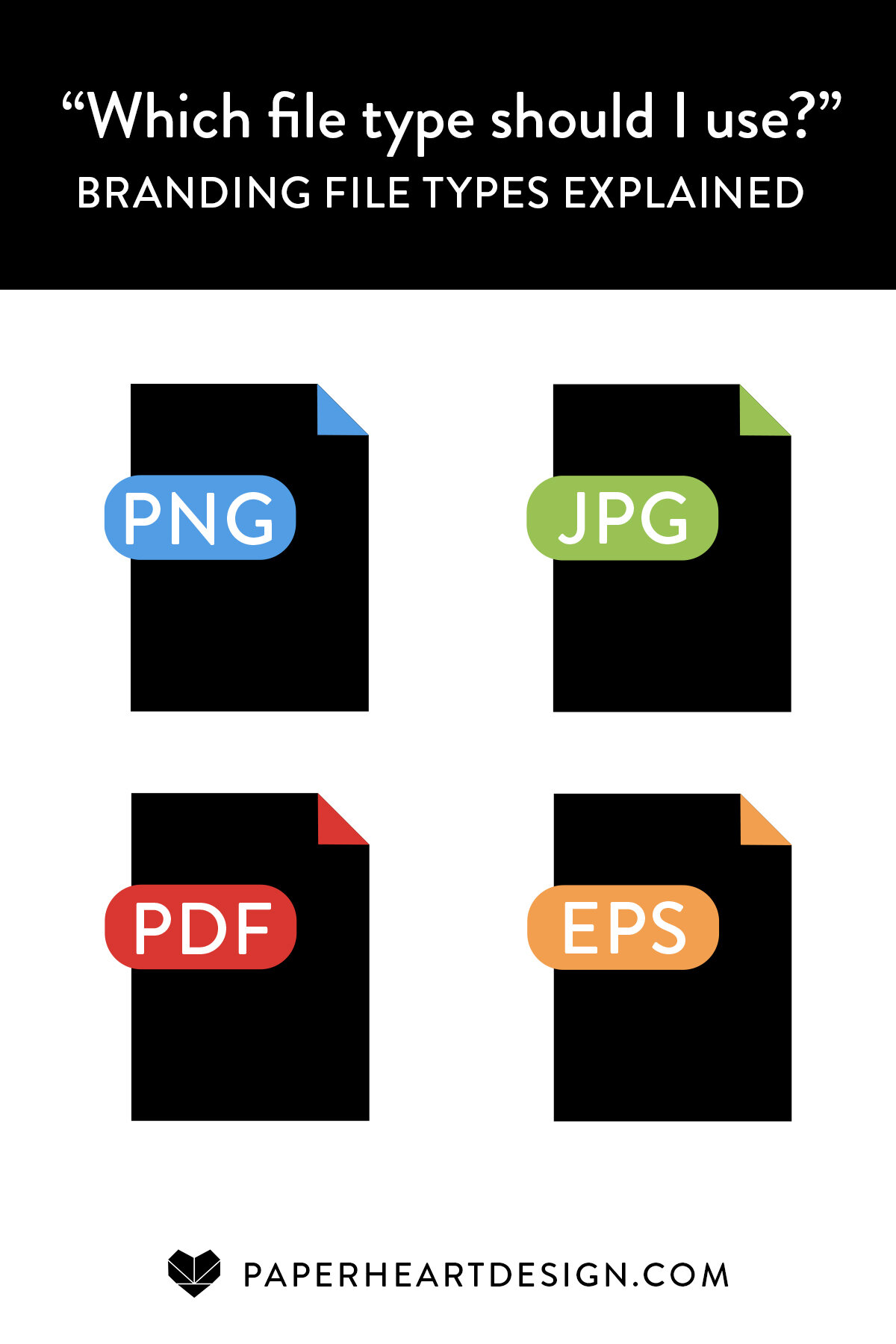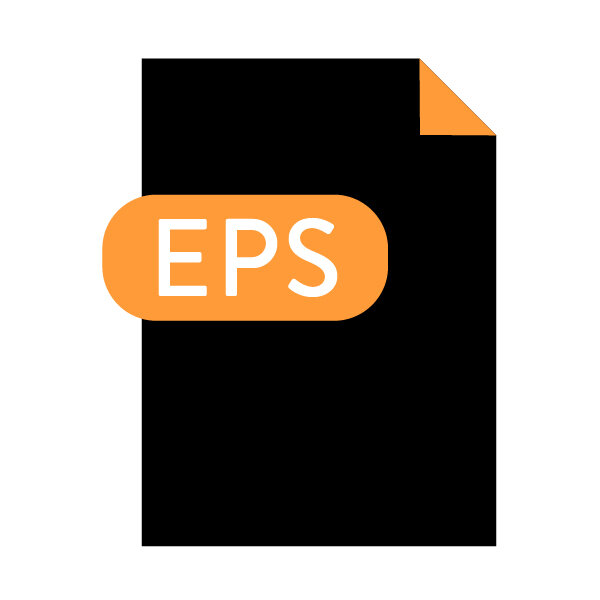Branding File Types Explained
So, you have a great branding package all ready to go and your graphic designer sends all your files for use… but there are so many different things… Why can’t I open this EPS file? What IS an EPS file?
There’s no reason to be in the dark anymore! Here are the top design file types used for your branding packages explained. There are other file types out there, but these are the four I like to focus on and provide for all my branding and logo design clients.
Raster vs. Vector
Before getting into each file extension we need to talk about raster files vs. vector files. A raster image are made up of pixels, which are essentially tiny squares of color, to make up the image. A vector file is made of paths. These paths are made of points, lines, shapes, and curves based on proportional formulas, rather than pixels, so they can be easily increased and decreased in size without distortion. You can do everything from a tiny web icon, to a full sized billboard with a vector file. Logos should always be created in a vector format, because it frequently needs to be resized and used on many different platforms.
File Types: What, When, and Where
PNG files are perfect for digital use. They have a transparent background which makes it great for layering. Use this format to create branded social media posts, social media banners, on your website or blog, in PowerPoint and Word Docs.
For web use
Raster image
Short for: Portable Network Graphic
JPG (AKA: JPEG) files are an image file that has been compressed, discarding unnecessary information. Because they are compressed there may be loss of clarity in the image, so you need to be sure it is a high resolution file appropriate for the size of your project. You can use this format for everything listed under PNG, but if you’re layering it over other images you will have a white box surrounding your logo. You can use a JPG for print items if it is correctly sized and a high resolution file, but a PDF is a much better bet.
For web use
For print use if sized properly
Raster image
Short for: Joint Photographic Experts Group
EPS files are like gold. They are a vector file, so you can scale it as large or as small as you would ever need. From business cards to billboard signs! This is also the file type needed by most screen printers and embroidery companies to create apparel for your company. An EPS file can also be edited in Adobe Illustrator, so it’s often referred to as your master file. You will not be able to open it unless you have a vector based computer program, but it’s vital to high quality printing. EPS can also have a transparent background, like the PNG. If I’m creating print files for a client I want to use an EPS of the logo in the file, because I know it will be crisp and clean!
For print use
Vector file
Short for: Encapsulated Post Script
PDF files are frequently used for sharing documents, because they’re easy to open and the formatting won’t change based on your device. It can also be used to share images, logos included. As often as possible you want your files for print to be created with an EPS logo and saved as a high-quality PDF for the printer. If I design a business card for you, you will get PDF’s of the final files, because they truly yield the best print results.
For print use
Vector file when created in a vector program, like Adobe Illustrator
Raster when created in a non-vector program, like Adobe Photoshop or Canva
Short for: Portable Document Format
I hope this was helpful in understanding why you’re receiving all these file types for your logo. If you paid for a branding package from another company and did not receive these, reach out to your designer, because you need them! If you’re still unsure which format to use for a specific project shoot me an email or comment below and I would be happy to help!
In an effort to foster a creatives community I’ve started a Facebook group called Art is a Record, the same name as this blog. I would love for you to join in the fun as we discuss creative living, projects, art, and life.






